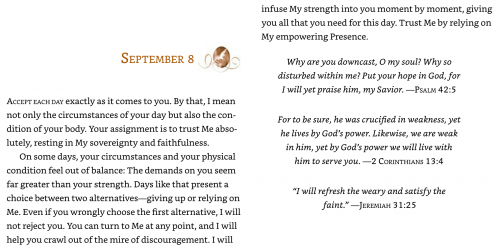Making Amends
Tuesday, September 8, 2020
So what are we restoring? For me it’s about returning to the part of us that really wants to be connected to one another in a good way. Returning to the goodness inherent in all of us. —Fania Davis
For justice to be truly restorative, we must seek to restore the dignity and relationships of all involved. Howard Zehr, a long-time advocate, teacher, and practitioner of restorative justice, centers the needs of the victims. He writes:
Restorative justice requires, at minimum, that we address the harms and needs of those harmed, hold those causing harm accountable to “put right” those harms, and involve both of these parties as well as relevant communities in this process. [1]
Here, Zehr explains why making amends is so foundational to healing:
Restorative justice is based upon an old, common-sense understanding of wrongdoing. Although it would be expressed differently in different cultures, this approach is probably common to most traditional societies. For those of us from a European background, it is the way many of our ancestors (and perhaps even our parents) understood wrongdoing.
- “Crime” or wrongdoing is a violation of people and of interpersonal relationships.
- Violations create obligations.
- The central obligation is to put right the wrongs, [that is], to repair the harms caused by wrongdoing. [2]
This is certainly a good description of how my siblings and I were raised by my parents to think about our own “wrongdoings.” Any scrape we got into, any hurt we caused one another, called for restoration far more than retribution. We had to fix what was broken and heal the relationship, not just say, “I’m sorry” or have a “time-out.” I wonder when or why we decided that model of reconciliation was no longer worthy of our time or effort—on familial and societal levels. Zehr continues:
Underlying this understanding of wrongdoing is an assumption about society: we are all interconnected. In the Hebrew scriptures, this is embedded in the concept of shalom, the vision of living in a sense of “all-rightness” with each other, with the creator, and with the environment. Many cultures have a word that represents this notion of the centrality of relationships. For the Maori, it is communicated by whakapapa; for the Navajo, hozho; for many Africans, the Bantu word ubuntu; for Tibetan Buddhists, tendrel. Although the specific meanings of these words vary, they communicate a similar message: all things are connected to each other in a web of relationships. . . .
Interrelationships imply mutual obligations and responsibilities. It comes as no surprise, then, that this view of wrongdoing emphasizes the importance of making amends or of “putting right.” Indeed, making amends for wrongdoing is an obligation. While the initial emphasis may be on the obligations owed by those who have caused harm, the focus on interconnectedness opens the possibility that others—especially the larger community—may have obligations as well.
Even more fundamentally, this view of wrongdoing implies a concern for healing of those involved—those directly harmed, those who cause harm, and their communities. [3]

Story from Our Community:
My day is bookended by the Center’s daily meditations and Fr. Richard’s writings. I keep a notebook for recording ideas that are most resonant with me and I take it with me on daily walks. These things are holding me together in this time where I feel emptiness and anxiety in the pit of my stomach. I hike and listen to the bugling of the Sandhill Crane overhead, the sweet trilling of the wood thrush, and the chiming of the [nearby Benedictine] monastery bells. Here in the peace and quiet of the natural world and with words of wisdom in my notebook, I feel steadied, comforted, and grateful. —Stefanie B.